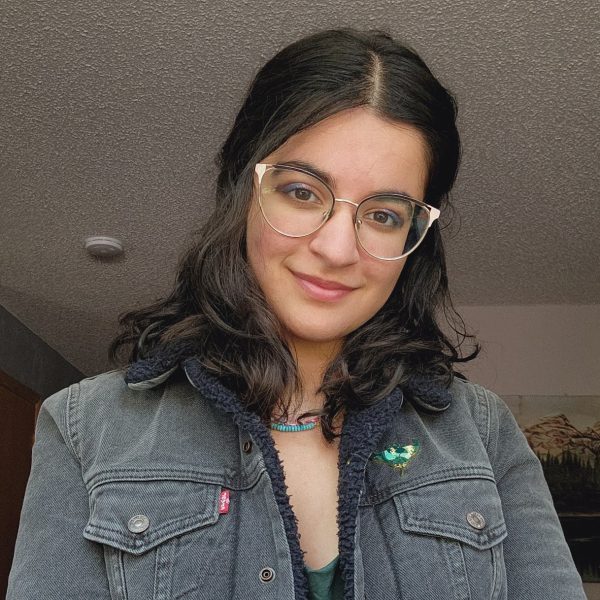For the past 32 years, Professor Ron Rodman has been sharing his passion for music with Carleton students. As a band director, instructor and lecturer in topics from music theory to movie musicals, his enthusiasm for the subject is clear.
Looking back on his time here, Rodman, as the Dye Family Professor of Music, has been involved in a lot. In the realm of performance, he has directed the band for 31 years and currently conducts the orchestra.
“It’s always great to make good music with students. I love that. It’s always been a lot of fun to make music with big groups,” he says of the experience. With Symphony Band especially, Rodman brought innovation to the program.
“When I first started here, like many teachers and students, I went: ‘What kind of mark am I going to make?’” he recalls. “I came up with doing themes for my band concerts, so I would focus on an area and pick music to reinforce that topic […] That first one was 1995, and we did the 50th anniversary of the end of World War II, for example.”
Themes for his concerts have been varied, from Western European music to pieces composed by African Americans. He even started incorporating interdisciplinary themes with music about water, literature and science, allowing him to collaborate “with other faculty for these concerts too. Susan Jaret McKinstry came over from English — Mike Kowaleski too — and Cindy Blaha from physics, for example, and they presented along with my concerts.”
Along with performance, Rodman has taught in the classroom too, an experience he says is both “fun and enjoyable.” He’s taught courses like The American Film Musical and Music and Advertising, as well as in electronic music, and of course, music theory, in which he holds his degree.
“What I’ve really enjoyed is the freedom to do a lot of those different things. I’ve taught trombone and low brass for a long time here too. Just having the variety of activities has been really great and having the students do them with me has been great too,” he says. “It’s rare to have the freedom to try things you might be interested in […] The department was very supportive.”
Most recently, Rodman performed with fellow faculty: “I just did a vaudeville show a week ago: Some of my research is on early twentieth-century American pop music, and this would’ve been done on a variety show type of format back then. That is [done] more with some of the music faculty, we get together and play to silent movies and sing-alongs.”
Rodman has also helped shape the arts at Carleton as a whole. “We had a nice grant [from the Sherman Fairchild Foundation] for music and technology, and we started the Carleton Arts and Technology group — CART, we called it. I was the first chair of that initiative and that was a lot of fun, to be able to work with people in theater and dance and media studies,” he says.
The first initiative for CART that he was part of was “to explore creativity through technology” and “to start new initiatives for the classroom.”
With the grant, “Stephen Mohring was able to buy a 3D printer for his classes, we were able to team-teach with a computer science person and an art person in … a little robotics class. I, myself, took time to learn electronic music programs and taught them, and people in theater and dance had this really cool technology where it would project your movements on the wall — it was a real spectacle.”
Of his love for music, Rodman says: “That’s such a deep, hard question: What do you like about music? What does anybody like about music? It gives us pleasure.”
“As a music scholar, it gives us something to study: It helps us think about systems, how a musical system works, and expands that idea to social and scientific systems,” he explains of his academic interest in the subject.
“For me, it’s kind of a blessing and a curse studying music, ‘cause I go into a grocery store and ‘Oh listen to that! What’s that chord progression?’ and my wife goes ‘What are you talking about?’” Rodman adds with a laugh.
For Rodman, “it’s nice that, with all the troubles in society and the world, music is this one thing that’s just pleasurable and an absolute beauty.” Despite his preference for classical music, he says, “There’s beauty in many types of music too: in classical music, in jazz, in pop, rock and rap. There’s something about it that transcends the world, the mundane world, the concrete world.”
While Professor Rodman is retiring after 32 years, his academic career isn’t over yet. “I’m co-editing a book right now for Oxford University Press, so that’s in the near future,” he says. Along with that, “I’ve got plans for a book on music in Black-cast sitcoms that I would like to pursue, and a few other writing projects too. I may even do a history of the Carleton music department, who knows?”
Professor Rodman is looking forward to having uninterrupted time to spend on these projects, which he says is “kind of like being on sabbatical.”
Along with the freedom Carleton has given him to explore all of his musical interests, Rodman says that “I’ve had some great relationships with students and faculty in and outside of the department. Like anything, like with you students, it’s fun to socialize and meet and work with people. It’s been a nice community here to live in.”











Marie • Dec 16, 2024 at 9:05 pm
Professor Rodman never stop writing music. I have your CD, for years, never get tired of hearing it, just the opposite. Brings me comfort, question and calm.
Thank you so much